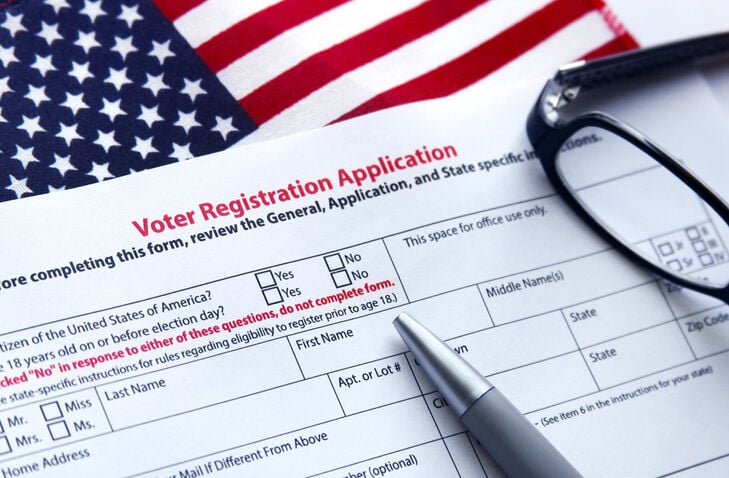PHOENIX — Groups involved in signing up people to vote are asking a judge to block a new law that could leave some voters who move with no registration at all, and could make felons out of volunteers who get people to register.
The state law requires a county recorder to cancel someone’s registration upon learning the person is registered to vote somewhere else, said attorney Daniel Arrellano, who represents Arizona Alliance for Retired Americans, Voto Latino and Priorities U.S.A.
Only thing is, he told U.S. District Court Judge G. Murray Snow in filing a lawsuit challenging the law, there’s nothing illegal about being registered in more than one place. And he said that happens when people move because they don’t automatically cancel their old registration.
What is illegal, Arellano said, is voting in more than one place.
The problem would come when each recorder discovers a registration from elsewhere, and each cancels the registration, he said.
“This double cancellation could result in a person being suddenly stripped of any active voter registration and being removed from all active early voting lists, without any notice whatsoever’’ from either county, Arellano wrote. “And even if a voter’s registrations are not all canceled, nothing in the Cancellation Provision prevents the cancellation of the voter’s registration where the voter currently resides, is eligible and intends to vote — a scenario that could also lead to disenfranchisement without notice.’’
He also pointed out the law has a provision to allow outside third parties to provide recorders with “credible information that a person has registered to vote in a different county.’’ That will “enable targeted voter suppression’’ to cancel voter registrations, even if there is no evidence an individual intends to vote in more than one place, Arellano said.
One example he gave: Students who register to vote where they go to school but have not actively canceled the registration where they were living before. Arellano said groups could seek to cancel the registrations of all college students, both where they were living and where they are living now.
He also cited provisions that make it a felony to help people register to vote if they’re already registered somewhere else. That gets back to the fact that many people, on moving, whether into Arizona or within the state, don’t automatically notify the recorder before they move.
Arellano said that creates problems for the groups he represents because their staff and volunteers help register voters.
The way the law is worded, he said, makes a felon out of anyone who does voter registration if they do not first confirm the person has canceled a prior registration. Arellano said that will deter voter registration efforts “and new Arizona residents will have less support in registering to vote and voting.’’
There are other legal traps for the unaware, he added.
Anyone who receives an early ballot belonging to a former resident must write “not at this address’’ on the ballot and place it back in the mail. He said that creates a new legal duty for people to monitor their mail and take action on early ballots that do not belong to them.
“In other words, an Arizona resident who receives an early ballot meant for a former resident and who simply ignores the early ballot (without marking it or placing it back in the mail) would be in violation of Arizona law,’’ Arellano told the judge. He said that “effectively conscripts Arizona residents into helping the state purge their neighbors from the voting rolls.’’
But Sen. J.D. Mesnard, R-Chandler, who wrote the legislation, said there is no penalty on those who simply choose to ignore the mailing.
Arellano also said the felony provision would apply to a parent who forwards an early ballot to a child attending school in another state if that parent did not know the child has registered to vote there, “even if the student has no intention to, and never actually does, vote in two places.’’
Mesnard, promoting his measure earlier this year to the House Committee on Government and Elections, said that won’t be a problem. He said prosecutors would have to prove a parent knew the child had registered to vote elsewhere.
“We’re not trying to catch any old person who makes an innocent mistake,’’ Mesnard said. “We’re trying to catch somebody who knowingly is facilitating fraud.’’
As to evidence of a problem of people getting early ballots who are registered elsewhere, Mesnard acknowledged he has no firsthand knowledge.
“I’ve had folks come to me and insist this has happened,’’ he said. “I’ve not gone to investigate.”
But Mesnard said his legislation will “make it clear’’ what the law requires.
Snow has set no date for a hearing on the legal challenge.





